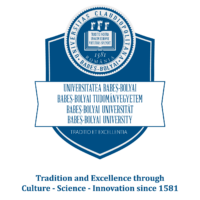
28 October 2025
A team of researchers from the Faculty of Economics and Business Administration at Babeș-Bolyai University in Cluj-Napoca (UBB) has published a study which looks into how deceptive or misleading product information advertised online affects consumer buying habits, pointing out the importance of trust in social media advertising.
Statista data from 2025 shows that Romanians rely on social media as their primary source of news and information, with Facebook, Instagram, and TikTok being the most popular platforms, with young people spending on average over four hours per day on these platforms. The study was conducted on a selected sample of 497 Romanian social media users aged between 18 and 34.
The research found that false product news circulated on social media makes consumers more sceptical, eroding their trust in brands and digital marketing. The cynicism associated with being exposed to this kind of content fuels the spread of negative opinions on social media, compounding the risks to brand reputation. However, trust in influencer advertising and social media ads acts as a protective factor, mitigating the negative effects of fake news. Reputable influencers, viewed as knowledgeable and authentic, help to reinforce trust and reduce cynicism, thus raising brand perceptions. Well-designed, informative, clear, and relevant ads may also boost consumer confidence and indirectly offset the negative effects of online misinformation.
The research findings provide valuable insights for the business community, as well as for marketing and communication experts. A brand-consumer relationship based on trust is critical when the consumer is subjected to false news or misleading information.
Marketing experts should focus on high-quality advertising content to build consumer trust and mitigate the negative effects of fake news. Influencers who focus on ethics, transparency in sponsored content, and authentic alignment with brand values are where companies should be looking. As an alternative to exclusively advertising messages, prioritizing campaigns that inform, offer solutions, and establish a genuine emotional connection with the target audience is recommended. Brands thus become a source of trust in an environment tainted by misinformation and disinformation. Social media ads should be tailored to the interests and needs of consumers and provide educational, relevant, and authentic content.
Once the public feels they have been misled, backlash spreads rapidly online, and reputation can be hard to restore. Brands should be open about what they do and be quick to address fake content. Ethics, honesty, and consistency in keeping brand promises are becoming the new standards that consumers expect from the companies they place their trust in.
“Online misinformation has dramatically changed the marketing landscape. As trust is now a volatile resource, a viral piece of fake news could challenge even the strongest brand. Where brands used to sell promises, what matters now is how they deliver on them. Our findings point to a fact that is often overlooked in online advertising, which is that people’s trust is not something you buy, but something you build, and it is the most valuable resource an enterprise can have,” opined Gabriela Sterie, co-author of the study and a doctoral student in marketing at Babeș-Bolyai University.
The findings of the research study, conducted by professor Ovidiu-Ioan Moisescu, PhD, doctoral student Luigia Gabriela Sterie, and professor Daniel Mican, PhD featured in the internationally leading journal Computers in Human Behaviour, published by Elsevier. The full paper is available as open source here: https://doi.org/10.1016/j.chb.2025.108842.

Tradition and Excellence with Culture-Science-Innovation since 1581
Babeș-Bolyai University of Cluj-Napoca (UBB) is the university with the most complex academic profile in the country (by its number of programmes and multicultural profile featuring three official academic languages: Romanian, Hungarian, and German), and with the oldest academic tradition in Romania (established 444 years ago – 1581), accounting for the largest academic community in the country (with a staff of more than 55,000 people, from 15 cities and 12 counties). Since its foundation, UBB has counted among the top universities in Romania, and for the past seven years it has been ranked first in the country in the University Metaranking, which indexes all major international university rankings. For several years now, UBB has consistently ranked among the top 5% of the world’s universities (out of approximately 30,000), with an advanced academic infrastructure (e.g. RDI units integrated into European networks, up-to-date teaching laboratories integrating virtual/augmented/mixed reality through the UBB-EON-XR Centre, etc.). Recently (2021), following the international QS STAR audit, UBB was officially ranked as the first world-class university (QS*****) in Romania, and in 2020 UBB was included in the GUILD, the organisation of the most prestigious European world-class/research-intensive universities, it was awarded the European HR Award for Excellence, and as of 2021/2022 it is a member of the EUTOPIA alliance of European universities.

